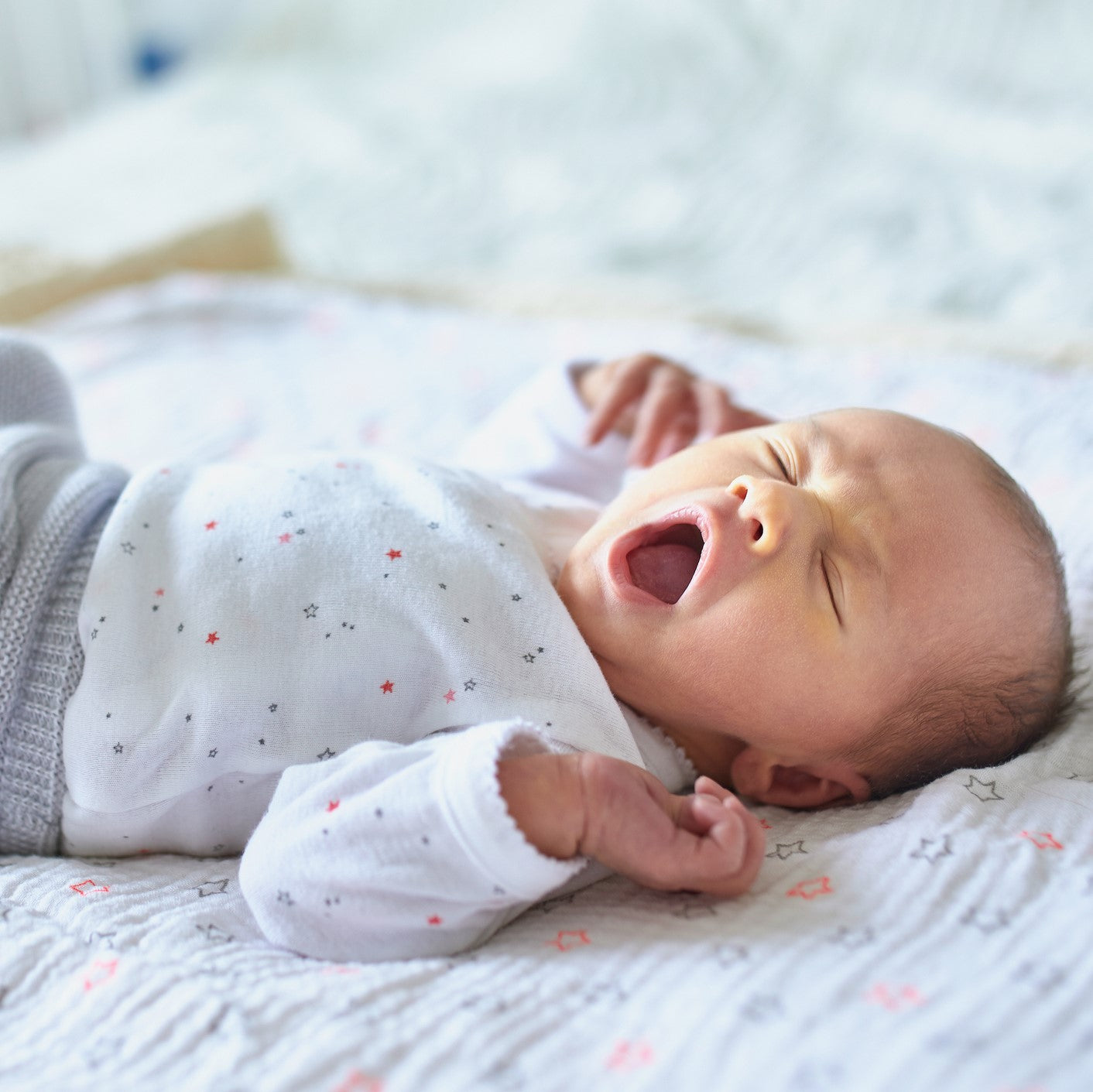As you are likely learning as a parent, your little one is full of surprises – and there’s plenty more in store! We asked Kendamil Feeding Expert Katie Hilton to share her most fascinating newborn facts, so read on to learn more!

As you are likely learning as a parent, your little one is full of surprises – and there’s plenty more in store! We asked Kendamil Feeding Expert Katie Hilton to share her most fascinating newborn facts, so read on to learn more!
1. They have no kneecaps
Yes, you heard me right! Babies are in fact born without any kneecaps – they have a structure made of cartilage that resembles a kneecap, but they don’t fully develop until around 6 months of age.
2. Babies born in May are the heaviest
Most people assume that babies born in January will be the heaviest because of all the feasting over Christmas and New Year. But research has shown that babies during the month of May are the heaviest, weighing around 200g more than babies born in any other month of the year.
3. Newborn babies have no tears
Whilst your baby will howl and scream to get what they want or need, they won’t theoretically cry. Newborn babies are unable to produce tears until around three weeks of age – this is because their tear ducts are not fully developed at birth. They will always produce moisture to keep the eyes well lubricated and healthy, but there will be no proper tears shed at least for the first 3-4 weeks. Phew!
4. Babies are born with 300 bones
Babies are born with almost 50% more bones than that of adults. The reason? A number of these bones fuse together during the first several years, bringing the total bones down to 206. For example, the skull of a newborn baby has several bones which overlap, creating what are known as fontanelles (or soft spots), which fuse together over the first 18 months of life. This overlapping of bones also helps the baby pass easier through the pelvis during birth. Thanks, Mother Nature!
5. Most babies have a birth mark
Most people consider a birth mark is an abnormality, but they’re totally normal – in fact, about 80% of babies are born with some sort of birth mark, with the most common types being a ‘stork bite’ or ‘port wine stain’. Most birth marks are caused by tiny blood vessels under the skin becoming dilated during labour and usually disappear after a few years.
6. Babies’ hair falls out
Don’t become too attached to that thick head of hair your baby was born with! Newborns tend to lose the hair they are born with during the first few weeks of birth. While it will gradually grow back over the first year, there’s no guarantee it will be the same as before.
7. Babies have impressive reflexes
A newborn baby is born with around 70 reflexes. For example, if you hold your baby upright with his feet on a flat surface, his legs will do a stepping motion. Of course, your baby can’t walk right now, but the knowledge of how to walk is born as a primitive reflex in your baby. Have you noticed that your baby jumps a lot? This is a reflex known as a ‘moro’, or startle reflex, which is a natural response all babies have to a loud noise. When this reflex occurs, you will see your baby startle and put his arms up and out, whilst bringing up his knees. A lot of these reflexes will either develop or become more integrated as your little one develops and grows.
8. Babies are always sleepy
You might have noticed that your baby is either always sleeping or looks sleepy. During the first weeks of life, your baby will only be alert for around three minutes in each hour during the day (and even less during the night). A baby’s brain which is absorbing so much information in these first few years will use up most of the glucose supplies in the body, which explains why your baby needs so much sleep!
9. Time to smile
Your baby will start to smile somewhere between 6-8 weeks of age. When you hit this age you can try to make your baby smile with funny faces or voices.
10. Your baby knows your taste in music
Research has demonstrated that your baby recognises your taste in music. From around four months into your pregnancy, your baby is able to hear sounds and music, so you might find that music you played frequently during your pregnancy helps to calm your baby after delivery.
